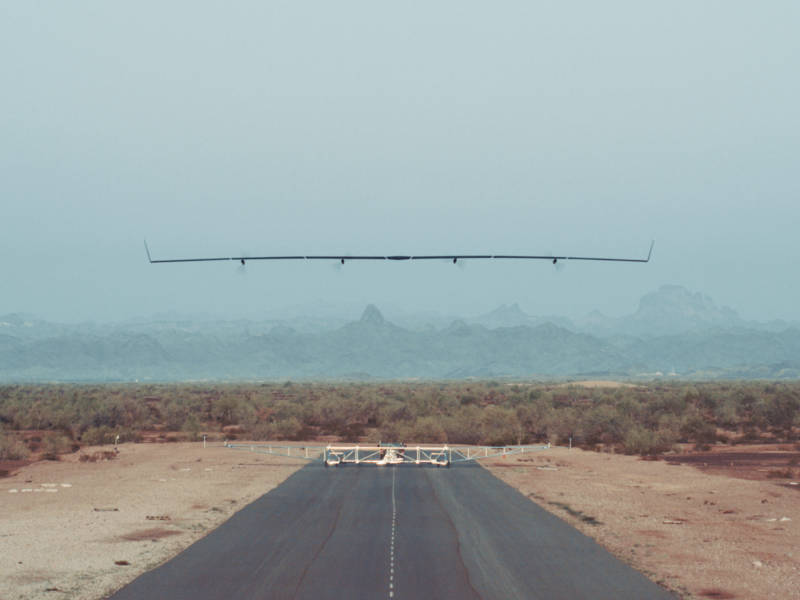Facebook just announced the first full-scale test flight of its unmanned, high-altitude airplane, Aquila. The plane isn't finished yet — the 90-minute test flight assessed only its takeoff and low-altitude flying capabilities — but its ultimate goal is to provide wireless Internet to the ground as it flies.
Facebook founder Mark Zuckerberg shared a video of the test flight.
https://www.facebook.com/zuck/videos/10102979862144171/
The lanky, solar-powered plane has a wingspan slightly longer than a Boeing 737 passenger jet, and it's made of lightweight carbon fiber and powered by the sun. Although the Internet delivery antennae have yet to be attached or tested, a company press release describes the future capabilities of the aircraft:
"When complete, Aquila will be able to circle a region up to 60 miles in diameter, beaming connectivity down from an altitude of more than 60,000 feet using laser communications and millimeter wave systems. Aquila is designed to be hyper efficient, so it can fly for up to three months at a time. The aircraft has the wingspan of an airliner, but at cruising speed it will consume only 5,000 watts — the same amount as three hair dryers, or a high-end microwave."
The test flight late last month over the Arizona desert lasted just over 90 minutes, according to Facebook.

9(MDAxOTAwOTE4MDEyMTkxMDAzNjczZDljZA004))